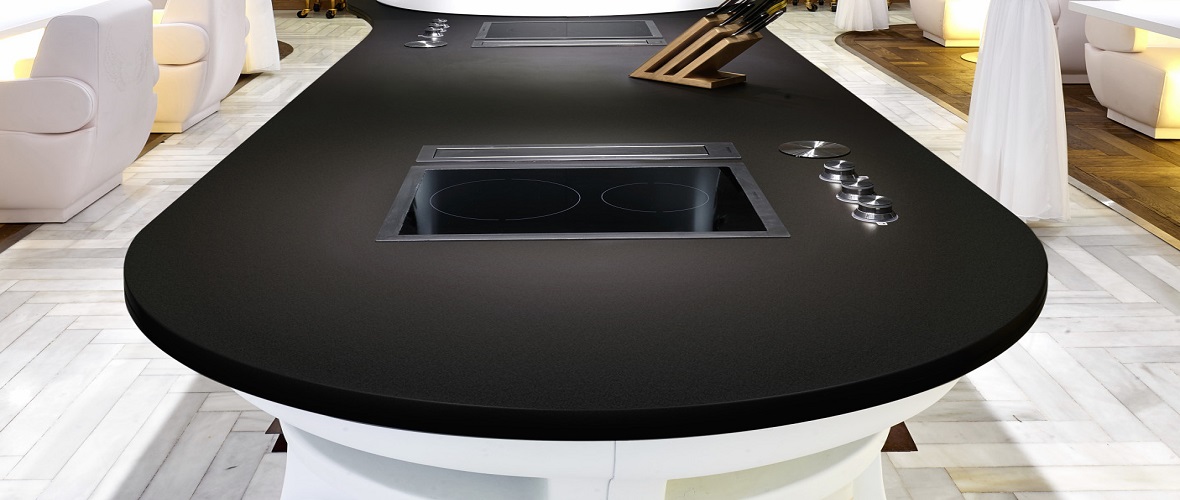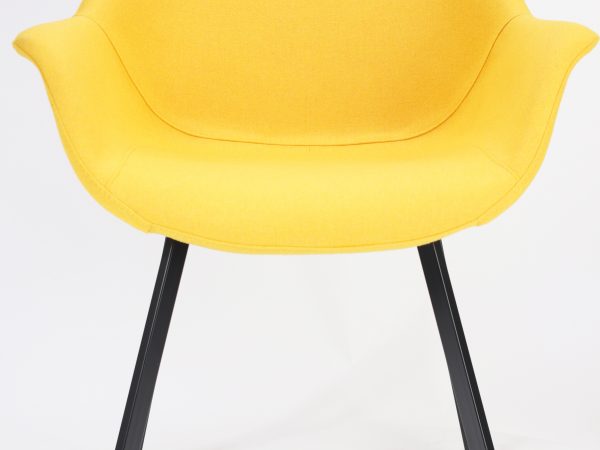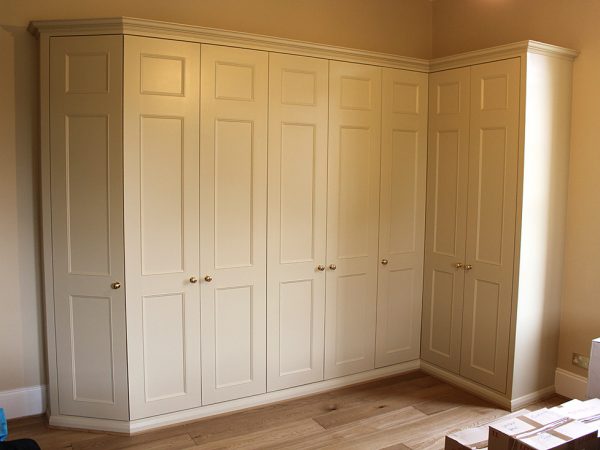Dekton is created from a mix of twenty carefully selected raw elements which includes materials such as glass, porcelain, and quartz. This dynamic blend of materials goes through a Sinterized Particle Technology which is an accelerated version of the natural metamorphic process suffered over hundreds of thousands years to rocks and other natural stones such as granite and quartzite. Thanks to the last technological advances in engineered stone production, Dekton surfaces results in a material is extremely compact, strong, highly durable and resistant to heat, scratches, and chips. Another advantage of Dekton when compared to other man-made materials such as quartz is that by being more heat resistant (Dekton can take up to 300 Celsius degrees of heat), pans and pots can be dragged on its surfaces. Further to this, Dekton does not change appearance when exposed to UV rays, making it suitable for indoors as well as for outdoors.
If you are planning to purchase Dekton for your home, there are a few important questions that you should ask before proceeding buying this new and incredible looking material. Let us have a look at such questions-
- What is the Style of your Home?
While Dekton offers an extensive range of materials, such as Dekton Entzo, Trilium, Vienna, etc. the style of your home is the first step to pick the right design and colour, in order to ensure it works with your existing decor. If you are redecorating your property, the style you want to achieve for your home should be taken into consideration when selecting the material. With respect to the style of your home, there are two major options- traditional and modern. Dekton offers many different materials that would perfectly suit these styles. As a matter of fact, with a range 42 different designs in novel colours and finishes make it very versatile and suitable for practically any type of style including retro, period, contemporary, industrial and eclectic designs too.
- What finish are you looking for?
The important question is about the texture of the material. Dekton offers multiple finishes which includes the highly polished Xgloss, Textured, Smooth Matte, Anti-Grip and more. Polished surfaces have a glossy finish which brings out the true character and colour of the material. Textured finish such as those seen on the new Dekton Industrial Collection, come with a rough appearance, which makes them a great choice for stylish interiors that require a natural looking surface that requires practically no maintenance when compared to other building and decoration materials such as concrete or cement. The latest XGloss finish offered by Dekton comes with a higher degree of sheen than other standard polished surfaces, further enhancing the beauty of the product and ensuring it attracts light making spaces look bigger than they actually are.
- What about your lifestyle?
While you might not think that this question is an important one, it actually has a major impact on the choice of Dekton material that you may select. As an example, if you prepare foods and cook very regularly, it may be best to pick darker colours such Dekton Orix or Dekton Radium as these designs would easily hide marks from grease, liquids and other foods whilst you carry out these activities. If you don’t cook regularly and are looking for more style over function, you can experiment with sophisticated shades and colours such white, beige, brown, cream, off-white and ochre. Designs such as Dekton Nilium, Valterra and Danae, bring the best out in ultracompact materials that offer a neat finish to your kitchen and bathroom.
- What would be the thickness of the material?
Depending on what you’d use the surface material for, there is a Dekton thickness for it. Usually, kitchen worktops start at 1.2cm thickness which is very much in vogue as the super-slim material offers a stylish finish to the counter. 2cm or 3cm thick are historically more popular for worktops, with 2cm being more popular on smaller properties and 3cm on places such as farm houses and period properties.
When it comes to wall and floor tile, these start a 0.8cm going all the way to 2cm and 3cm too. If you are working on a kitchen splashback or bathroom panel application and cut outs for sockets, levers and handles are required, a minimum 1.2cm is recommended as a surface in order to ensure these are strong enough to take on the holes and remain strong when accidental impact occurs. If you are looking for outdoor stone pavers, they are usually recommended in 2cm or thicker. As an informative guidance, it is good to take into account that the larger the size of the panel or tiles, the thicker the surface to make it suitable for a given application.
Popular Dekton materials such as Dekton Aura and Dekton Opera are available in several thicknesses and many different tile formats. And with tile dimensions of up to 157x140cm, there are no limits in order to help you pick the right thickness as per your application.
- What is your Budget?
You also need to take your budget into consideration before you start browsing the many different options offered by Dekton. Dekton materials are available across a wide price range. In order to provide with an example, while Dekton Trilium and Dekton Nilium are more economical than other options like Dekton Natura and Dekton Kairos which display intricate veining. as these colours require a more time-consuming manufacturing process of these products. The price can also fluctuate on the basis of the finish you select. Already having a fixed budget in mind before browsing through the options would accelerate the selection process.
If Dekton is what you are planning to buy for your home, make sure that you ask these five questions before committing to your purchase. There are some well known stone suppliers in the UK that can help you with all your queries and make the selection easier.




